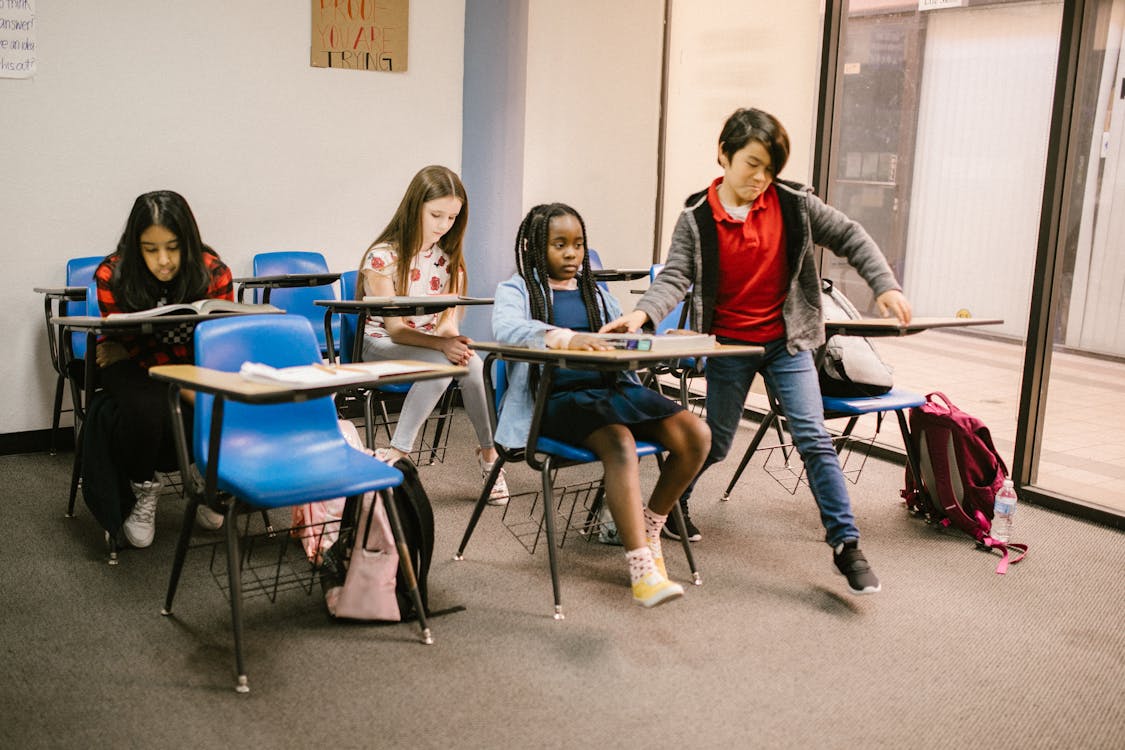Kids with special needs are kids first
In the world of many challenging children there’s this general saying, “Oh, sorry, she has a disability,” and most of us have heard it before. This indirectly implies that since she has a disability she is allowed to misbehave.
Unfortunately, you can’t always control the disruptive behavior and declare victory, and you can’t always blame it on having a disability when the child acts out.
Yet its what parents do!
If you want to become an expert at managing your child’s disability, then start from the beginning.
When our children are very young, they undergo a series of tests before diagnosis. We go through a lot of emotions. What is wrong with her? Can she understand what I am saying? How will we manage? If that is not enough, we still have to take care of the other members of our family.
You are not alone. We’ve all felt the world tumble when we find out that our child will be different.
Since we want to be good parents we often feel as though we need to go easy on our child because she is “special.” Our child–simply because she was born and is the product of a beautiful love–is special, and now we find out that she is indeed “special.” Let’s face it, our precious babies are super cute. It is difficult to think about any of them becoming a teenage terror.
“I feel sorry for her.”
Of course we do. We can’t begin to know what our child’s life is going to be like. Therefore, we want to be nice to her, spoil her, and try to understand how to take care of her so that she knows she is loved. We do everything and anything we can for our child just because she is different.
Interestingly enough, in the early years after a disabled child is born, families might feel tired and worn out–understandable. Older children feel as though they are not being treated fairly. Perhaps older children have to take on responsibilities that they wouldn’t ordinarily need to do. Perhaps the family is not able to travel on vacation or go on outings together due to the circumstances or behaviors of the disabled child. There is an understanding at this stage because everyone in the family wants to do what is best to care for the child.
All this is wonderful–when they are babies, but babies grow up to be–dare I say it–teenagers! Ugh!
So now we have a kidlet who may have cognitive delays, physical needs, and behavioral challenges, but soon their behavior manifests into defiance, confrontation, and unreasonable demands.
Now what?
Over time, most children act on what they know or what they have already experienced. If parents let their child, with or without special needs, get away with bad behavior, that same child will add that incident to her mental bank. If this situation is repeated, even inconsistently, it sends the message that the child does not have to comply or follow the rules. Hence; now your child has a “learned behavior.”
According to Simply Psychology (McLeod 2016), theorist, Albert Bandura’s Social Learning Theory (1977), “Children observe the people around them behaving in various ways.” Their environment is crucial to this learned behavior. Children often will imitate the behaviors they interact with. So, if a child with special needs sees someone else with a toy, chances are the disabled child will also want the toy. Many times, our special child is not able to understand future outcomes and relies solely on the “here and now.” Logic is not relevant for many of these children, only what they already know.
One of the components of this theory is the idea of motivation. If the rewards are better than the punishment, if any, the child will act out until she gets what she wants (McLeod 2016). If parents are not consistent at a young age, this motivation will continue because now it has been learned. For a child with neurological delays, this is important because she is not able to process right from wrong successfully. Just like our typical children, behaviors and interventions need to be taught, albeit, in a way that our special children can understand.
***It should be noted that some children, who are very involved as critically dependent, will need a variety of emotional, physical, and academic supports. For that reason, this social learning theory most likely would not apply.
Be consistent from the beginning
For our typical children, it is easier to speak with them logically and set clear boundaries for behavior–whether we actually do or not is a different story. That being said, it is not easy to speak logically to a child who now has a learned behavior and only lives in the “present” tense–“I want it now!”
Our special children also need clear boundaries, but if this does not happen from early childhood, the result will be defiance and opposition at every chance possible.
Let’s face it, some days are horrible and we wish we could just stay in bed rather than deal with it. Or perhaps, hope our child oversleeps or naps so we can avoid any confrontation. That is not a good way to live, nor should we. We love our children no matter what, but are desperate to find a solution.
The difficulty families have is to restart the child’s behavior plan. This means finding something “positive” the child likes, and something “negative” the child doesn’t like. How much detail and explanation parents should go into will be based on the child’s disability. If parents feel confident their child understands right from wrong at any level, they could advise the child about a new behavior plan–but then, parents will need to stick to it.
For example, if you don’t want your child to throw things or scream if she can’t watch TV, explain it to her beforehand, not when she is in the heat of the moment. Then, when she does choose to scream due to her learned behavior, let her scream into tomorrow if you need to. Be sure to make this a family affair so that no one gets hurt. It will get worse before it gets better! Too many times, parents give in after a while, and hence, there goes that learned behavior again.
“Look, I just screamed for 6 hours and I still got to watch TV.”
It will get worse before it gets better!
It might take about a week or so to reset some behavioral challenges, and of course, if your child is not able to comprehend right from wrong, then this plan will not be successful. Although, most parents are very intuitive about what their child likes and does not like; so, behavioral supports might be necessary. Those families will need to get creative to work on changing behaviors through positive reinforcements.
Parents have a responsibility to identify the problem and find a workable solution before the child starts attending school. It is easy for us to just “give in” to the child’s wants because we might be working, busy, or exhausted from the constant back and forth–sometimes we just don’t want to deal with it. I get it–it’s never easy, but consistency and determination might help with other future challenges.
Yes, your child has a disability, and if we could go back in time to change any of it, then perhaps we would. If we had a crystal ball to know what their teenage years would be like we might have found a solution back then–but we didn’t, so now we need to work very hard on moving forward. After all, we are teaching social skills and independence.
All kids have tantrums, but not all kids have a disability. When parents blame the disability instead of correcting the child’s behavior it sends a message that it is ok and others should accept it.
Unfortunately, it is not always about the disability. Early interventions like functional and social learning are just as important as reading, science, and math. For more information about special needs discipline, parents can get help at Kids Health.
Photo credit: RDNE Stock Project – Pexels free use




Let’s Talk!